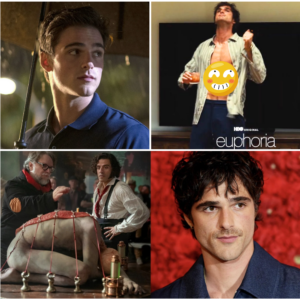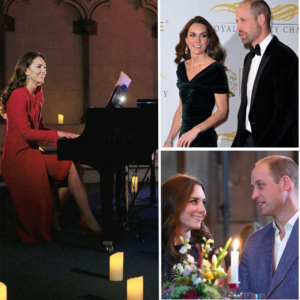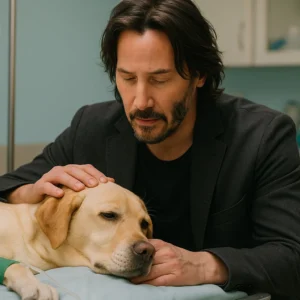The British crime thriller Dept. Q, created by Scott Frank and Chandni Lakhani, has solidified its place as one of Netflix’s standout hits of 2025. With its gripping narrative, atmospheric Edinburgh setting, and a stellar ensemble led by Matthew Goode as the abrasive yet brilliant Detective Chief Inspector Carl Mørck, the series has captivated audiences and critics alike. Following its debut on May 29, 2025, Dept. Q spent six weeks in Netflix’s Global Top 10, amassing 27 million views and earning an impressive 88% on Rotten Tomatoes. The announcement on August 19, 2025, that the series would return for a second season was met with enthusiasm from fans eager to see more of Mørck and his team of misfits tackling Edinburgh’s cold cases. However, as the show prepares to dive into new mysteries, it must confront its most lingering enigma: the truth behind the Leith Park shooting that shattered Mørck’s life and set the series in motion.
Adapted from Jussi Adler-Olsen’s bestselling Danish novel series, Dept. Q reimagines the Copenhagen-based story in the moody, gothic streets of Edinburgh. The first season, based on The Keeper of Lost Causes, follows Mørck as he returns to the police force after a traumatic incident that left him wounded, his partner James Hardy (Jamie Sives) paralyzed, and a young constable, Anderson (Angus Yellowlees), dead. Assigned to head the newly formed Department Q—a cold case unit relegated to a derelict basement office—Mørck assembles a team of outcasts, including Syrian ex-policeman Akram Salim (Alexej Manvelov), young constable Rose Dickson (Leah Byrne), and eventually Hardy, to investigate the disappearance of prosecutor Merritt Lingard (Chloe Pirrie). While the season resolved Lingard’s case, the Leith Park shooting remains a haunting mystery, with clues suggesting a deeper conspiracy that could redefine Mørck’s journey in Season 2.
This article explores why the Leith Park shooting is the series’ most pressing unanswered question, how it shapes Mørck’s character and the narrative, and what Season 2 must do to address it. Drawing on fan reactions, critical reviews, and the show’s narrative threads, we’ll also examine the broader implications for Dept. Q as it moves forward.
The Leith Park Shooting: A Mystery That Defines Carl Mørck
The opening scene of Dept. Q sets a visceral tone: a botched investigation in Leith Park where Mørck, Hardy, and Anderson respond to a reported stabbing. The operation goes horribly wrong when a masked gunman ambushes them, killing Anderson and leaving Hardy paralyzed. Mørck, shot but surviving, emerges as a broken man, wracked with guilt and battling post-traumatic stress disorder (PTSD). The incident, depicted through flashbacks, is the emotional and narrative anchor of the series, shaping Mørck’s cynicism, his strained relationships, and his reluctant leadership of Department Q.
The shooting’s ambiguity is deliberate. As Collider notes, “details regarding the shooting have been left ambiguous, as the event may not have been as straightforward as initially assumed”. Clues scattered throughout Season 1 suggest it was no random attack. Mørck later discovers the stabbing victim may have been an informant, and Anderson’s suspicious behavior before entering the house raises questions about his culpability. Was the team lured into a trap? Was Anderson complicit, or was he a victim of a larger conspiracy involving figures like gangster Eugene Errington or a compromised witness? These unanswered questions linger, with Mørck’s boss, Moira Jacobson (Kate Dickie), assigning Hardy to investigate off the books by the season’s end.
This mystery is pivotal because it defines Mørck’s emotional arc. Goode’s performance, described by The New York Times as “deceptively thoughtful” even in Mørck’s brashest moments, portrays a detective clinging to his abrasive persona as a shield against guilt and trauma,. His insomnia, half-lidded eyes, and curt dialogue—punctuated by perfectly enunciated expletives—convey a man teetering on the edge. The Leith Park incident is the source of his unraveling, and resolving it could either redeem him or push him deeper into cynicism.
Why Season 2 Must Tackle the Shooting Head-On
With Dept. Q renewed for Season 2, likely adapting Adler-Olsen’s second novel, The Absent One, the series has an opportunity to delve into the shooting’s complexities. Here are three reasons why addressing this mystery is essential:
1. Deepening Mørck’s Character Development
Mørck is the heart of Dept. Q, and Goode’s portrayal has been universally praised for balancing charm, menace, and vulnerability. Entertainment Weekly calls him “mesmerizing as Mørck, a right mean old bastard whose melancholy manifests itself in harsh and often hilarious insults”. Yet, his growth as a character hinges on confronting the trauma that defines him. Season 1 shows him slowly rebuilding trust with his team and finding purpose in solving Lingard’s case, but the shooting remains a raw wound. As Collider argues, “The best way for Dept. Q Season 2 to improve upon its predecessor is to get even more personal, and Carl’s backstory offers ample opportunities to tell an emotional story about anxiety, loss, and betrayal”.
Exploring the shooting could force Mørck to question his instincts and loyalties. If Anderson was involved in a setup, or if higher-ups in the police department were complicit, Mørck’s distrust of authority—already evident in his disdain for bureaucracy—would intensify. This could push him to choose between personal justice and professional duty, a theme hinted at in Season 1 when he suspects corruption tied to Lingard’s disappearance. Goode himself notes that Mørck doesn’t undergo a “great change” by Season 1’s end, remaining “a bit of a mystery”. Season 2 must peel back these layers, using the shooting to reveal whether Mørck can heal or if his paranoia will consume him.
2. Strengthening the Ensemble Dynamic
Dept. Q’s strength lies in its ensemble, with standout performances from Manvelov as the enigmatic Akram, Byrne as the determined Rose, and Sives as the resilient Hardy. The Leith Park shooting connects them all, particularly Mørck and Hardy, whose partnership was fractured by the incident. Hardy’s paralysis and slow recovery add emotional weight, and his assignment to investigate the shooting off the books sets up a potential conflict of interest. As The Hollywood Reporter notes, the “interplay of Goode and Manvelov is one of the show’s main pleasures,” but Hardy’s avuncular charm and mentorship of Rose also enrich the team dynamic,.
Unraveling the shooting could test the team’s cohesion. For instance, Akram’s mysterious past as a Syrian ex-policeman—hinted at through his “disturbing skills” in extracting confessions—could come into play if he uncovers sensitive information. Rose, eager to prove herself, might push Mørck to confront uncomfortable truths, while Hardy’s personal stake in the case could create tension. The series’ humor, often derived from interpersonal banter, could be amplified by these conflicts, as seen in Mørck’s sharp exchanges with his therapist, Dr. Rachel Irving (Kelly Macdonald). Resolving the shooting would not only advance the plot but also deepen the relationships that make Dept. Q compelling.
3. Elevating the Narrative Beyond Procedural Tropes
While Dept. Q excels as a procedural, critics have noted its reliance on familiar tropes: the grizzled detective, the misfit team, the moody aesthetic. IGN acknowledges that the show “indulges in plenty of detective-story tropes” but stands out through its “elegant, well-performed, twisty mystery”. However, Slate critiques the central mystery of Lingard’s disappearance as “ludicrous” and convoluted, arguing that the show’s strength lies in its characters and setting rather than its plot. The Leith Park shooting offers a chance to craft a more grounded, emotionally resonant mystery that avoids the pitfalls of Season 1’s hyperbaric chamber torture plot.
By focusing on a conspiracy within the police department or Edinburgh’s criminal underworld, Season 2 could explore themes of corruption and betrayal, which resonate with the series’ gritty tone. The suggestion that the shooting was a coordinated hit involving Errington and a getaway driver introduces a web of deceit that fits Adler-Olsen’s knack for interlocking mysteries. This approach would align with The Absent One’s focus on a seemingly solved murder case that unravels into something darker, allowing the show to maintain its procedural roots while elevating its stakes.
Fan and Critic Reactions: A Divided Perspective
The Leith Park shooting has sparked lively discussion among fans and critics, reflecting its significance. On X, fans have praised the show’s emotional depth and Goode’s performance but expressed frustration at the shooting’s ambiguity. One user, @CrimeTVJunkie, posted: “Dept. Q is 🔥 but why haven’t they explained that Leith Park mess? Carl’s guilt is eating him alive, give us answers! #DeptQ”. Another, @EdinburghMysteries, speculated: “Bet Anderson was dirty. No way that shooting was random, Mørck knows it too. Season 2 better dig into this! #Netflix”. These reactions highlight the audience’s investment in the mystery and their desire for resolution.
Critics, meanwhile, have mixed views. The New York Times calls Dept. Q “less than the sum of its influences,” citing its convoluted narrative but praising Goode’s charismatic performance. Collider emphasizes the shooting’s potential, noting that it “will significantly impact [Mørck’s] abilities as a leader moving forward”. However, some, like Slate, argue that the show’s focus on character over plot risks undermining its mysteries. These contrasting opinions underscore the challenge for Season 2: balancing emotional storytelling with a coherent, satisfying resolution to the shooting.
What Season 2 Should Do: A Roadmap for Resolution
To address the Leith Park shooting effectively, Dept. Q Season 2 should follow a three-pronged approach:
1. Uncover a Conspiracy Gradually
Rather than resolving the shooting in a single episode, Season 2 should weave it into the main case, likely the murder of a brother and sister from The Absent One. Clues could emerge through Mørck’s investigation, such as a connection between Errington and the new case’s suspects. Hardy’s off-the-books probe could reveal internal police corruption, forcing Mørck to confront his superiors. This gradual unfolding, as Scott Frank describes, would “drip-feed” information, maintaining suspense while deepening the narrative.
2. Explore Mørck’s Emotional Stakes
The shooting’s resolution must tie to Mørck’s personal growth. His strained relationship with his stepson, Jasper (Aaron McVeigh), and his therapy sessions with Dr. Irving offer avenues to explore his guilt and redemption. A revelation that Anderson was complicit could shatter Mørck’s trust in his own judgment, while evidence of a cover-up could galvanize him to seek justice. Goode’s ability to convey “emotional without being sentimental” makes him ideal for these scenes.
3. Leverage the Edinburgh Setting
Edinburgh’s “damp stony streets” and gothic architecture are integral to Dept. Q’s atmosphere. Season 2 should use locations like Leith Park or Burntisland Docks (where Season 1 filmed) to revisit the shooting’s scene, uncovering physical evidence or witnesses. The city’s history as a judicial center could tie into a conspiracy involving legal or criminal figures, grounding the mystery in its setting.
Potential Pitfalls and How to Avoid Them
While the shooting offers rich storytelling potential, Season 2 must avoid Season 1’s flaws. The Lingard case’s “ludicrous” elements, like the hyperbaric chamber, alienated some viewers. The shooting’s resolution should steer clear of overly sensational twists, focusing instead on realistic motives like greed or betrayal. Additionally, the narrative must not overshadow the ensemble. Akram, Rose, and Hardy need substantial roles, as their chemistry is a highlight. Finally, the show should maintain its sharp dialogue and dark humor, which critics like Lucy Mangan of The Guardian praise as “sharp and lean”.
The Broader Implications for Dept. Q
Resolving the Leith Park shooting could redefine Dept. Q’s trajectory. A conspiracy plot would align with Adler-Olsen’s novels, which often explore systemic corruption. It could also attract a wider audience, building on the 27 million views from Season 1. By addressing Mørck’s trauma, the show can appeal to viewers who value character-driven stories, while a tighter mystery could satisfy those frustrated by Season 1’s convolution. With nine more novels to adapt, Dept. Q has the potential to become a long-running hit, provided it balances its procedural roots with emotional depth.
Moreover, the shooting’s resolution could comment on real-world issues like police accountability, a topic resonant in 2025 amid global discussions about institutional reform. Mørck’s outsider status as an English detective in Scotland, coupled with his disdain for authority, positions him to challenge systemic flaws, making the story culturally relevant.
Conclusion: A Mystery Worth Solving
Dept. Q’s renewal for Season 2 is a testament to its compelling characters, atmospheric setting, and Goode’s magnetic performance. However, the unresolved Leith Park shooting remains the series’ most pressing mystery, holding the key to Mørck’s redemption and the team’s future. By unraveling this enigma with care—through a gradual conspiracy reveal, emotional stakes, and Edinburgh’s gritty backdrop—Season 2 can elevate Dept. Q from a solid procedural to a genre-defining thriller. As Goode told Netflix, “I cannot wait to read what comes from [Scott Frank’s] magic quill!”. Fans share that anticipation, hoping the next chapter delivers answers to the mystery that started it all.




